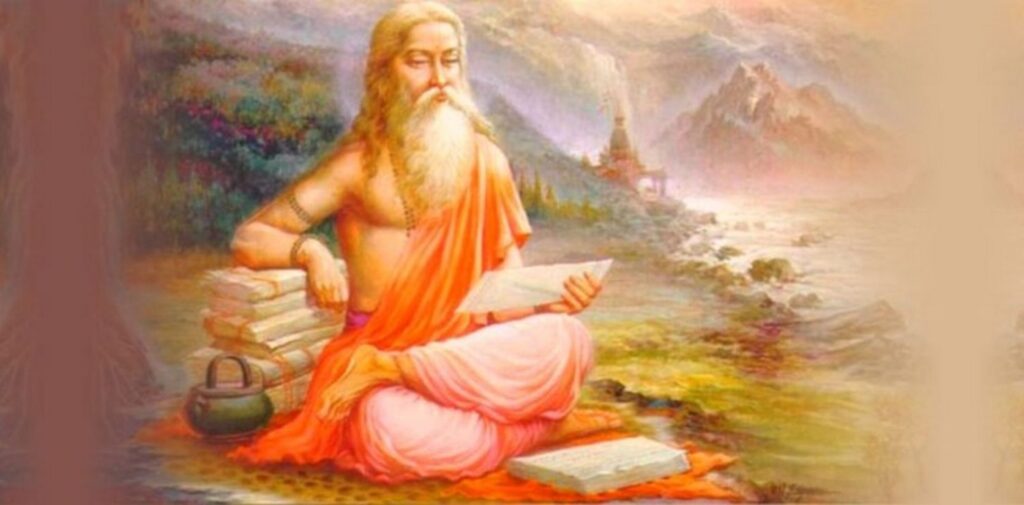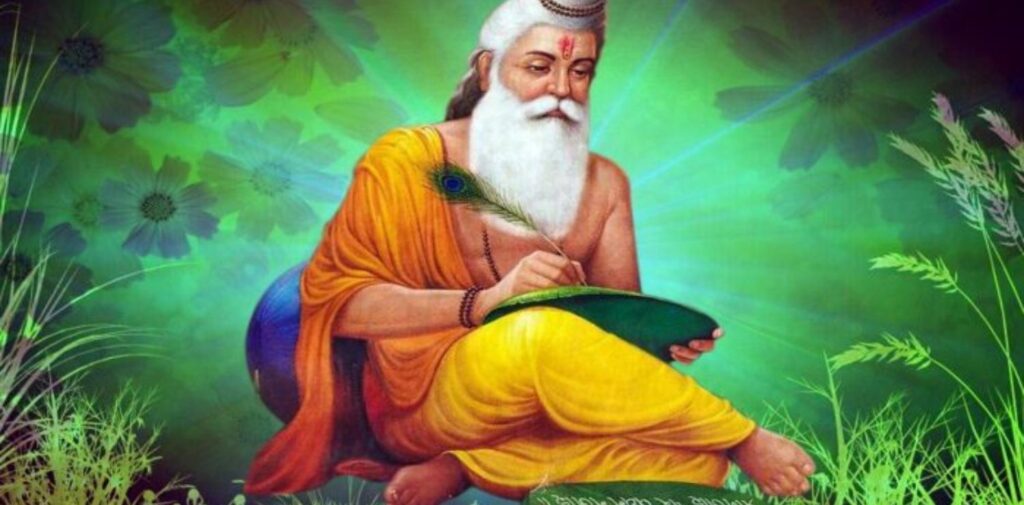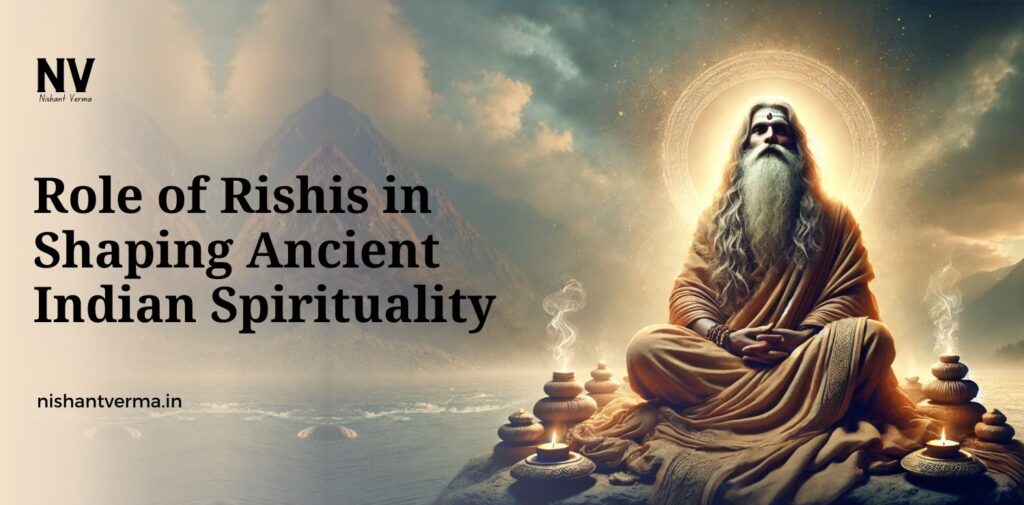In the vast and ancient spiritual landscape of India, the rishis—those revered sages and seers—hold an important place. These enlightened individuals were not just scholars or philosophers, but spiritual leaders who contributed immensely to the shaping of Indian spirituality. Through their profound understanding of the divine and the universe, the rishis created a deep spiritual framework that continues to influence Indian thought, philosophy, and practice. In this article, we will explore the crucial Role of Rishis in Shaping Ancient Indian Spirituality, their contributions to sacred texts, and the spiritual legacy they left behind.
Who Were the Rishis?
In ancient India, the term ‘rishi’ referred to a sage or a seer who was believed to have attained direct insight into the nature of the universe through deep meditation, contemplation, and spiritual practice. These individuals were not only skilled in the intellectual aspects of philosophy but were also deeply connected to the spiritual and mystical dimensions of life. They were often depicted as being in tune with higher cosmic forces, able to access divine knowledge and spiritual truths that were not apparent to ordinary people.
Rishis were considered the custodians of spiritual wisdom, and their role was to preserve, propagate, and teach this knowledge to the next generations. The rishis played a central part in the early development of religious and philosophical practices in India, and their teachings laid the foundation for many spiritual traditions that still exist today.

The Spiritual Contributions of Rishis
1. Revelation of the Vedas
The rishis are most famously associated with the Vedas, the oldest and most sacred scriptures of Hinduism. According to Hindu tradition, the Vedas were not written by humans but were ‘revealed’ to the rishis through deep meditation and divine inspiration. These ancient texts, which include the Rigveda, Yajurveda, Samaveda, and Atharvaveda, contain hymns, prayers, rituals, and philosophical teachings that form the core of Vedic spirituality.
The rishis, through their intense spiritual practices, were believed to have received these divine revelations during moments of heightened awareness and connection with the divine. Their wisdom was then transmitted orally, passed down through generations of students, and eventually recorded in the form of sacred texts. The Vedas are not only a religious guide but also contain profound philosophical insights into the nature of existence, the universe, and the divine.
2. Development of Rituals and Sacrifices
The rishis were also instrumental in the development of religious rituals and sacrifices that were central to ancient Indian spirituality. These rituals were designed to maintain harmony between the human and divine realms. They believed that through proper rituals, humans could connect with the gods and achieve spiritual growth.
Many of the sacrificial rites that are mentioned in the Vedas were formulated by the rishis. These rituals were not just outward practices but were deeply connected to the spiritual evolution of the individual. By performing these ceremonies with devotion and precision, a person could purify their mind, body, and soul, bringing them closer to ultimate spiritual liberation.
3. The Concept of Dharma
One of the significant contributions of the rishis was their formulation of the concept of dharma, which is central to Indian spirituality. Dharma refers to the moral and ethical duties and responsibilities that an individual must follow in life, based on their role in society and the universe. The rishis outlined the importance of living a life in accordance with dharma, believing that doing so would lead to inner peace, righteousness, and spiritual progress.
The teachings of the rishis emphasized the importance of truth, non-violence, and compassion—values that form the foundation of Hinduism and many other Indian spiritual traditions. These ethical principles have shaped not only individual lives but also social structures in India for thousands of years.

The Role of Rishis in Yoga and Meditation
1. Yoga as a Path to Spiritual Liberation
The rishis were the pioneers of the practice of yoga, which is one of the oldest spiritual practices in the world. Yoga, in its truest sense, is not just a physical exercise but a comprehensive system designed to unite the individual soul with the Supreme Divine.
The rishis developed various forms of meditation and physical postures (asanas) to help individuals transcend the limitations of the body and mind, and experience higher states of consciousness. The spiritual practices they taught were designed to lead the practitioner toward self-realization, where they could experience their true nature as divine beings. This deep and holistic approach to yoga continues to be followed by millions of people around the world.
2. Meditation for Inner Vision
For the rishis, meditation was the key to unlocking divine wisdom. It was through meditation that they received spiritual visions and insights, which were then shared with their disciples. Meditation, or dhyana, was not simply a mental exercise for the rishis; it was a way to merge with the universal consciousness and attain a state of pure awareness.
Many of the teachings of the rishis on meditation were recorded in the Upanishads, the philosophical portion of the Vedas. The Upanishads contain profound discussions on the nature of the self (Atman), the Supreme Being (Brahman), and the ultimate purpose of life—liberation from the cycle of birth and death (moksha).

The Legacy of the Rishis
1. The Upanishads and Philosophical Teachings
The rishis were responsible for developing the philosophical teachings that are found in the Upanishads. These texts are considered the culmination of Vedic thought and present a deep exploration of the nature of the self and the universe. They introduced the idea of the oneness of all existence and the ultimate reality of Brahman, the supreme cosmic force. The Upanishads’ teachings on meditation, self-realization, and liberation formed the foundation for many schools of thought in Hinduism, Buddhism, and Jainism.
2. The Influence on Later Spiritual Traditions
The rishis’ teachings have had a lasting impact on the spiritual traditions of India. Their ideas on meditation, ethics, and the nature of the soul influenced the development of numerous philosophies, including Vedanta, Yoga, and Sankhya. These teachings were also pivotal in the rise of other spiritual movements, such as Jainism and Buddhism, which arose in ancient India as alternative spiritual paths.
Even today, the wisdom of the rishis is revered and followed by millions of people. Their insights into the human condition, the universe, and the divine continue to inspire spiritual seekers around the world.
3. The Preservation of Spiritual Knowledge
The rishis were not only the originators of spiritual practices but also the preservers of ancient wisdom. Through their discipline, devotion, and commitment to truth, they safeguarded the knowledge of the divine and passed it down to future generations. Without the efforts of the rishis, much of the spiritual knowledge we have today might have been lost. They ensured that this wisdom would be available for anyone who sought it, making spiritual teachings accessible to all.
Conclusion
The role of rishis in shaping ancient Indian spirituality cannot be overstated. These enlightened sages and seers were not just scholars; they were the visionaries who established the spiritual, philosophical, and practical frameworks that continue to guide millions of people in India and around the world. Through their revelation of the Vedas, their teachings on dharma and meditation, and their contributions to the development of yoga, the rishis created a legacy that transcends time and place.
Their profound insights into the nature of the soul, the universe, and the divine have shaped the spiritual path for countless individuals throughout history. Today, as we seek deeper spiritual understanding, the teachings of the rishis remain as relevant as ever, offering timeless wisdom for those who wish to connect with the higher aspects of existence and live in harmony with the divine.




